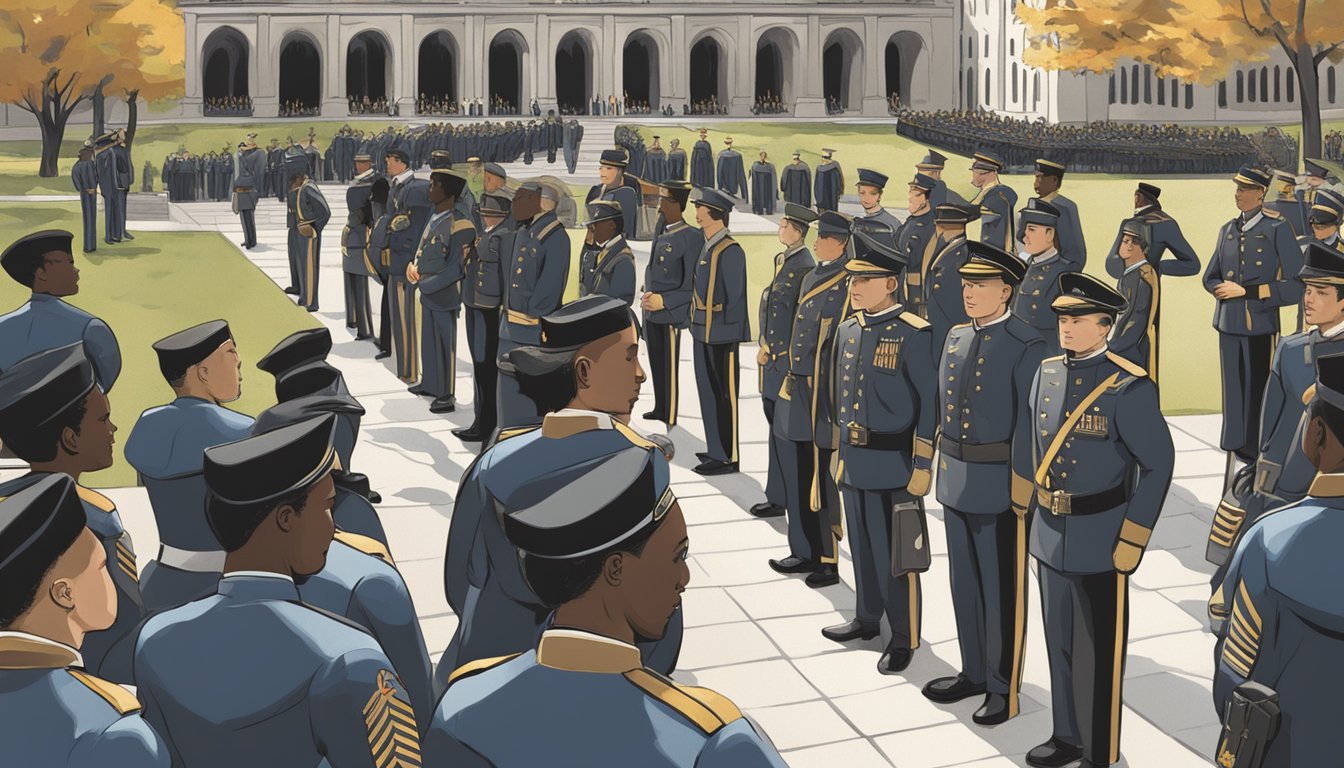The United States Military Academy at West Point has recently decided to dissolve several cadet organizations that catered to specific ethnicities, genders, races, and sexual orientations.
This action is in step with the recent directives from the Trump administration aimed at scaling back diversity initiatives in federal workplaces.
Recent Changes at West Point
In a memorandum issued on Tuesday, West Point detailed its decision to close various groups, including the Asian-Pacific Forum Club, the Latin Cultural Club, the National Society of Black Engineers Club, and the Society of Women Engineers Club.
This move aligns with guidance from the Army and the Department of Defense.
Furthermore, long-established organizations such as the Corbin Forum, which focuses on developing leadership skills among female cadets, as well as Spectrum—an alliance for LGBTQ+ cadets—have also been disbanded.
Official Guidance and Their Implications
This shift comes in the wake of President Trump’s executive order last month, which targets eliminating diversity, equity, and inclusion initiatives within federal agencies.
Among its provisions were instructions for furloughing and ultimately terminating staff involved in these diversity-focused programs.
The memorandum also mandated a temporary suspension of all remaining cadet organizations while a compliance review is conducted to ensure alignment with the new administrative policies.
Community and Inclusivity Concerns
West Point has stated that it is currently evaluating programs associated with its former Office of Diversity and Inclusion.
Despite these changes, the academy assured that over one hundred clubs remain active, with leadership committed to providing cadets a variety of opportunities to enhance their academic, military, and physical capabilities—all in accordance with military regulations and directives.
In response to inquiries regarding the memorandum, the Department of Defense directed questions to West Point and the Army, while also disseminating recent guidance which stated that official resources will no longer support events or celebrations linked to cultural recognition periods, like Black History Month.
This guidance raised concerns that favoring one group over others could compromise unit cohesion and operational effectiveness.
An alumnus of West Point, who was involved with one of the now-closed clubs during his studies, reflected on the inclusivity these organizations fostered, as they welcomed cadets from all backgrounds.
He emphasized that these clubs served as a vital platform for building community, allowing students to connect with diverse cultures and forge friendships.
Rather than being centered on divisive issues, the organizations focused on creating connections.
While programs aimed at promoting diversity, equity, and inclusion were intended to assist historically marginalized groups, some critics argue that these initiatives can unintentionally disadvantage white individuals.
Over the years, military academies have made significant progress toward enhancing racial inclusivity and increasing female representation.
However, female cadets and those from diverse backgrounds have shared their experiences of encountering challenges, including instances of hostility and discrimination within the academy.
Source: Militarytimes

